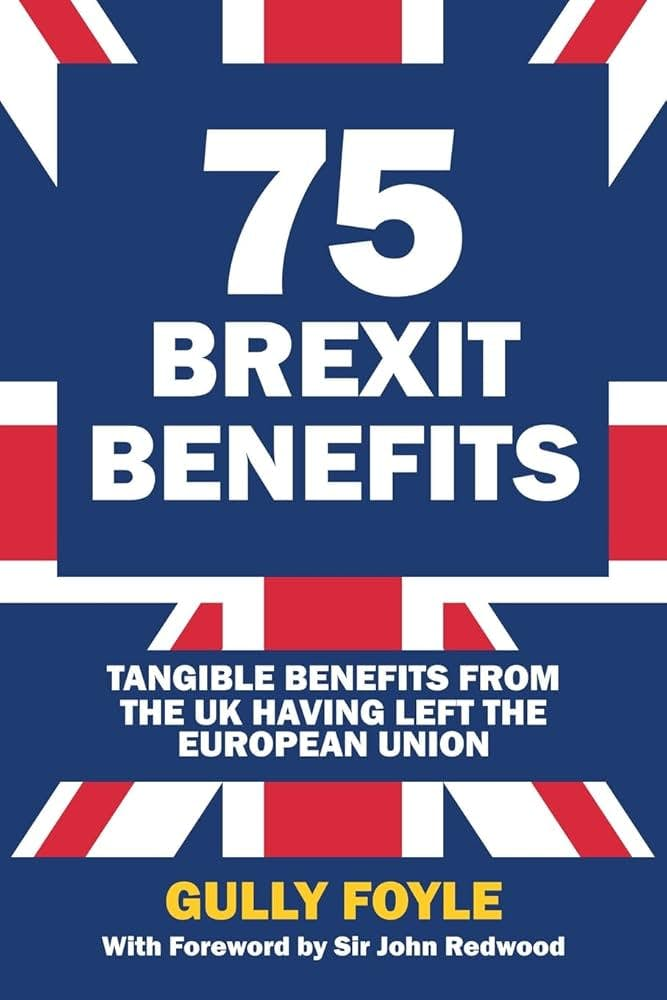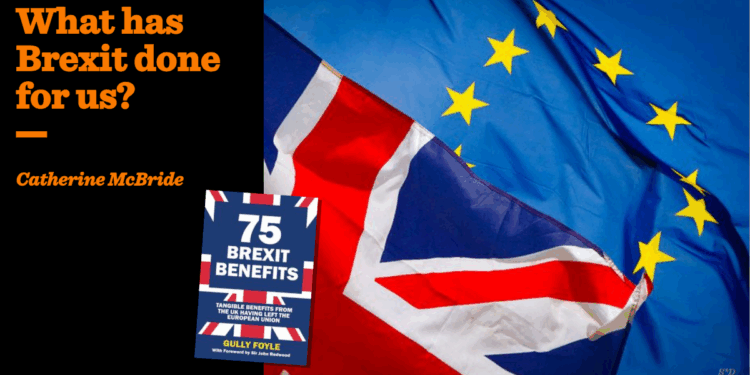Since the UK left the EU in 2020, my friends and foes have asked: What was the point of Brexit? They felt Brexit had made little difference in their daily lives. Having repeatedly heard politicians complain that they couldn’t do this or that because of EU regulations, many Brexit voters expected monumental changes in UK governance after the country left the EU.

Unfortunately, the Brexit voting public had underestimated the number of EU regulations that had been enshrined in UK law and often gold-plated by UK regulators and lawmakers. While many other EU member states interpreted EU law “flexibly” to suit their economies, or ignored it altogether, the UK had regulated itself into a corner that will take many years and a determined government effort to undo.
However, despite the challenges that still need to be addressed, many UK regulations were changed after Brexit; however, this has generally only been apparent to those working in the regulated sector. Some UK regulations were changed immediately through statutory instruments, and/or “regulatory indifference”, where EU rules were no longer enforced. Others changed more slowly after parliamentary debate: debates that could not have occurred as members of the EU. For example, the Agriculture Act 2020, the Environment Act 2021 and the Financial Services and Markets Act 2023.
If these regulations didn’t affect your life or your business, you may not have noticed them. For example, the UK dropped the EU’s Crop Diversification Measure, known colloquially as the “3 crop rule”, as it disproportionately benefited smaller continental EU farms and harmed the UK’s relatively larger farms. Strangely, the EU also abandoned this rule in its 2023-2027 CAP reforms, reinforcing the belief of many Brexiteers that some EU laws had been implemented solely to disadvantage UK businesses.
This certainly appeared to be the case with some EU financial regulations, such as the MiFID II Double Volume Cap restrictions of 4 per cent and 8 per cent for off-market transactions. This regulation affected UK markets almost immediately, while less-traded French and German markets were barely impacted. The FCA stopped enforcing the double volume caps in June 2020 for UK equities and after January 2021 for all equities. Again, paranoid Brexiteers might not be wrong about the EU’s motivations, as the EU also revised this rule in 2024 and replaced it with a single volume cap of 7 per cent.
If you are a Brexit enthusiast, like me, you may be familiar with many of these post-Brexit regulatory changes. However, if not, it is great to see that another devoted Brexit enthusiast, and X personality, known as Gully Foyle has compiled a list of 75 changes to UK: life, law, immigration, regulation, trade, animal rights, farming, finance, and many other areas since Brexit, which he has entitled 75 Brexit Benefits.
Not all of the “Brexit Benefits” are ones that I would have wanted, such as the imposition of VAT on private school fees. I would have preferred the Government replace VAT with a simple sales tax — but hey, VAT on Private School fees was outlined in the manifesto of the elected UK government. So, I can’t complain. If you don’t like this or other “Brexit benefits”, then you can vote to change the UK government at the next election — something we could not do as EU members if we did not like EU regulations.
Hopefully, next year, there will be a second volume detailing further changes that have been made to move the UK away from the decaying EU economies and towards the dynamic economies of the United States, Asia, and Africa. Or better still, closer to the Commonwealth, as the UK’s heavily service-based economy is better aligned with countries that use Common law, common accounting standards and of course a common language, English, as either their first or second official language.
Unfortunately, there is also a chance that the second edition will be a much shorter book, as a group of MPs on both sides of the House of Commons still do not accept that the UK voted to leave the EU and that the UK economy has benefited from this decision. So while these MPs, who were elected to govern the UK but would prefer to abdicate this responsibility by aligning the UK with EU regulations again, continue their plotting, it is helpful to have a book reminding UK citizens of the powers they now possess and why they should resist at all costs the attempts to transfer these powers back to the Brussels bureaucrats.
75 Brexit Benefits does what it says on the tin, allowing readers to easily find and understand the benefits to the UK of being outside the EU, even if they are not directly involved in the sector or policy area where the regulations have changed.
75 Brexit Benefits is a catalogue of post-Brexit achievements and a reaffirmation of why the UK voted to leave the EU
Hopefully, the book’s positive message will encourage Rejoiners to examine all the areas where the UK could adopt Global best practice, rather than maintaining the pretence that the “EU knows best”. They don’t — and they never did. Even Mario Draghi understands and has publicly stated that the EU’s overregulation and irrational fear of technology have contributed to reducing EU prosperity and economic growth. Why would anyone want to align with that?
75 Brexit Benefits is a catalogue of post-Brexit achievements and a reaffirmation of why the UK voted to leave the EU. It is well researched and functions as a helpful reference for countering the naysayers who have yet to acknowledge that the UK economy is performing better than either France or Germany. Or those who refuse to accept that the UK has superior agricultural and animal welfare standards, more trade agreements, and better financial regulations, among other advantages. Most importantly, it makes an ideal Christmas gift for the Remainers and Rejoiners in your life. It is available at all good bookshops and on Amazon. Hopefully, someone will send a copy to Nick Thomas-Symonds, Stella Creasy, Ursula von der Leyen, Michel Barnier, Jean-Claude Juncker, and Guy Verhofstadt.












